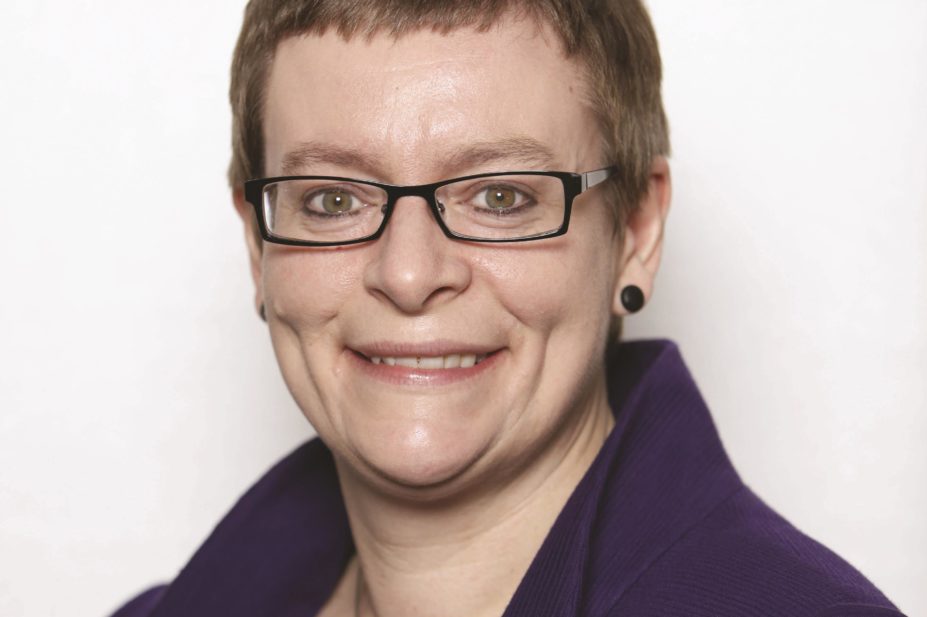
Adapt to survive: Judith Smith’s message to the pharmacy profession couldn’t be clearer.
The health service analyst’s recent report, ‘Now More Than Ever’, raises serious, existential questions about pharmacy’s place in an NHS set to be dominated by austerity.
The report by Smith, director of policy at the Nuffield Trust, looks at progress since 2013’s ‘Now or Never’ report, commissioned by the Royal Pharmaceutical Society (RPS). This called on the profession to prioritise direct patient care and delegate dispensing and supply of medicines.
Her one-year review reveals that despite advances in areas such as urgent and emergency care, pharmacy still has a long way to go to realise this ambition and create new roles to safeguard its future, particularly in the community setting.
Speaking to The Pharmaceutical Journal, Smith suggests her latest report should be taken as a warning. “Pharmacy has got to seize the opportunities now, in the next few months, or is at risk of getting left behind,” she says.
A changing NHS
The report followed October 2014’s ‘NHS Five Year Forward View’, which charts a new direction for the health service as it attempts to address gaps in funding, population health and quality of care.
This will see the NHS develop very different models of care, says Smith, and pharmacy must ensure it has a voice in local developments.
“If pharmacy is going to be at the centre of the new multispecialty community providers and the primary community health systems, there are some things that need to happen,” she says.
Her most immediate challenge to the profession is to harmonise the inconsistent messages from the profession’s nebular leadership into one voice that can make a stronger case for pharmacy’s proposed new role.
The RPS has been praised for commissioning the two reports, supporting the ‘Now or Never’ vision and planning five campaigns in England to boost pharmacy’s standing in the NHS. Smith believes commissioners and other health professionals are now much more aware of this potential wider role for pharmacists.
Nevertheless, her new report says that despite some progress towards promoting the caregiving role, “there has been no sign of a step-change in the profession and its leaders seizing the opportunities summarised in ‘Now or Never’”.
“It’s a complex mix of organisations,” says Smith, describing pharmacy’s leadership. “It looks quite fractured from outside. We heard again this year from people outside pharmacy — both professional and patient organisations — that they don’t know who to go to.”
In any case, those outside pharmacy are “not terribly interested” in these divisions, she says. “They want to hear: what’s the contribution that pharmacy can and should, and will, be making, and how’s it going to do that?”
Funding challenge
A united voice will be particularly vital on funding: pharmacy sorely needs a new deal to allow the proposed caregiving role to flourish, she argues.
“It’s about being open to the fact that things are going to be different in the future; it won’t just be the old contractual approaches.”
This may be a long time in coming, she says, and pharmacists must take the initiative first. In particular, this means convincing local commissioners, providers, hospitals and GP federations about the benefits of using pharmacists for patient-facing care.
“It’s about not waiting to be asked,” says Smith.
She says there remains resistance from some in general practice to pharmacists providing more clinical services, which needs to be addressed. “I know we make a strong case that pharmacy as a profession needs to, in a sense, get its act together and speak as one voice, [but] there’s also the fact that, if we’re honest, there’s resistance on the part of general practice, particularly often at a local level. Pharmacists and pharmacies find that when they’re wanting to implement change.”
The ‘Now or Never’ report asked tough questions of the profession: many remain unanswered.
“Last year, we were reflecting that there were lots of local examples of innovations in terms of pharmacists being caregivers, but our question was why hadn’t this happened at scale and pace, and exploring what had got in the way of progress,” says Smith.
“One year on, we’re saying yes, that commitment’s there, that the ‘Now or Never’ work last year got that message about the potential role of pharmacists and pharmacy much more out into the wider domain.
“Now, we are still being quite challenging to pharmacy as a profession to say: you’re still not outward focused enough.
“There’s some signs of progress, but still not at the pace and scale that’s going to be needed if pharmacists are going to take up the role they could, and should, within the NHS.”
You may also be interested in
Long service of members

Membership fees 2022
